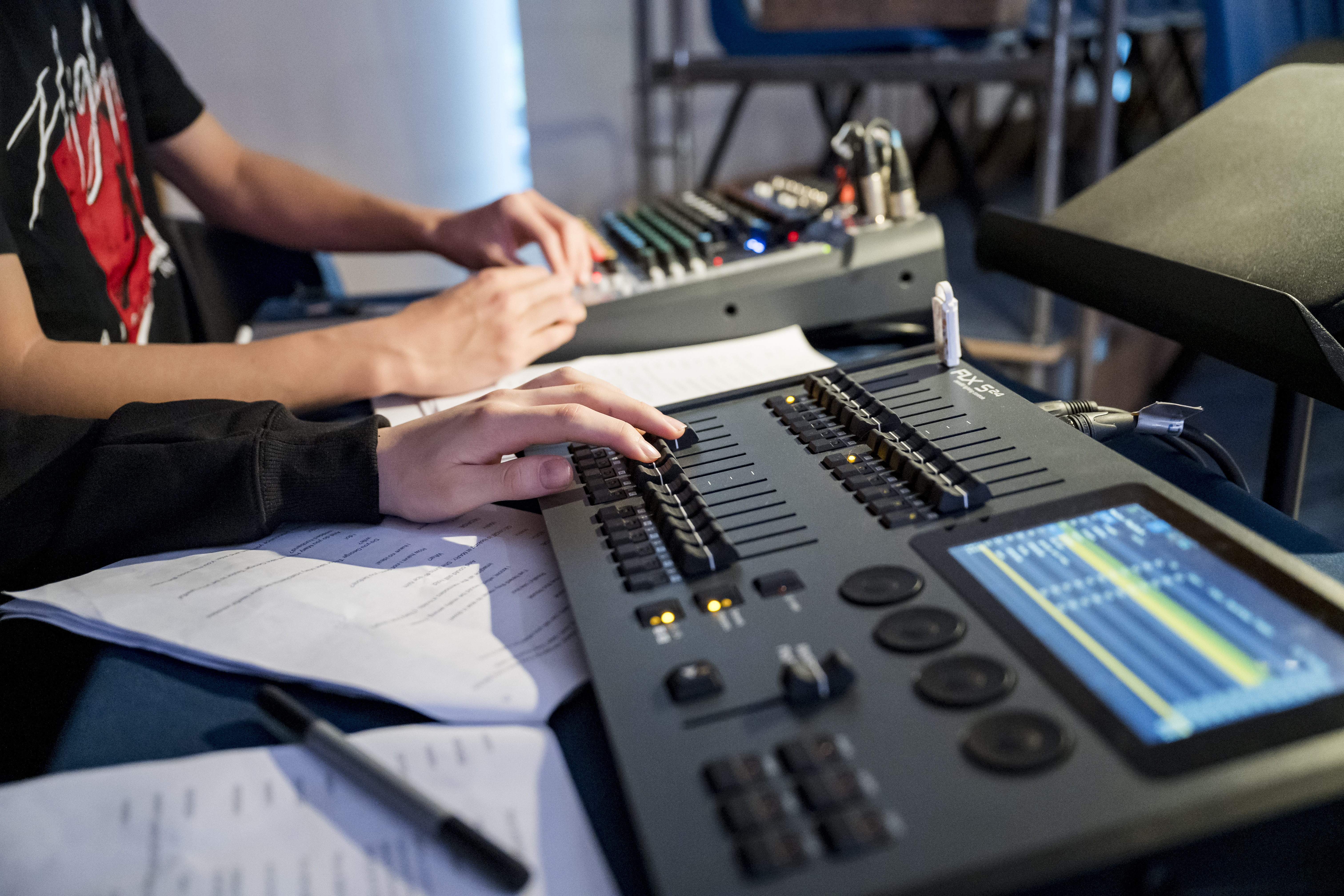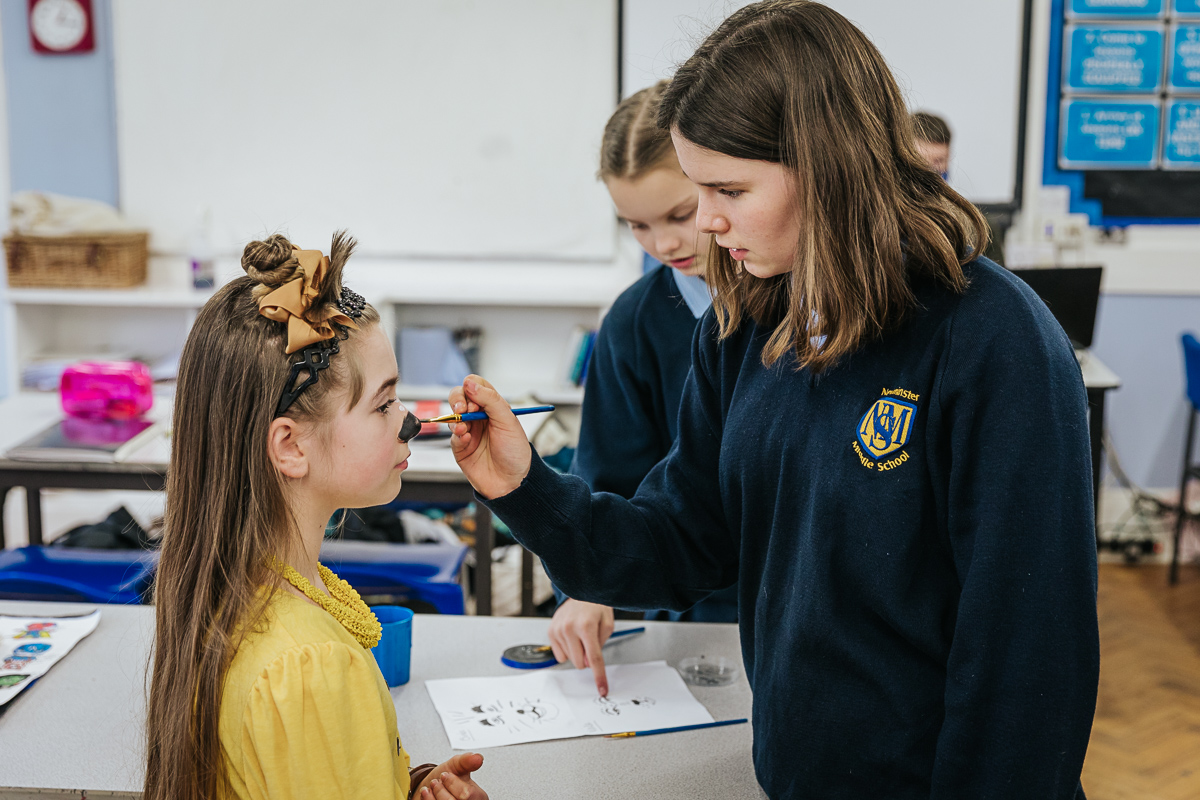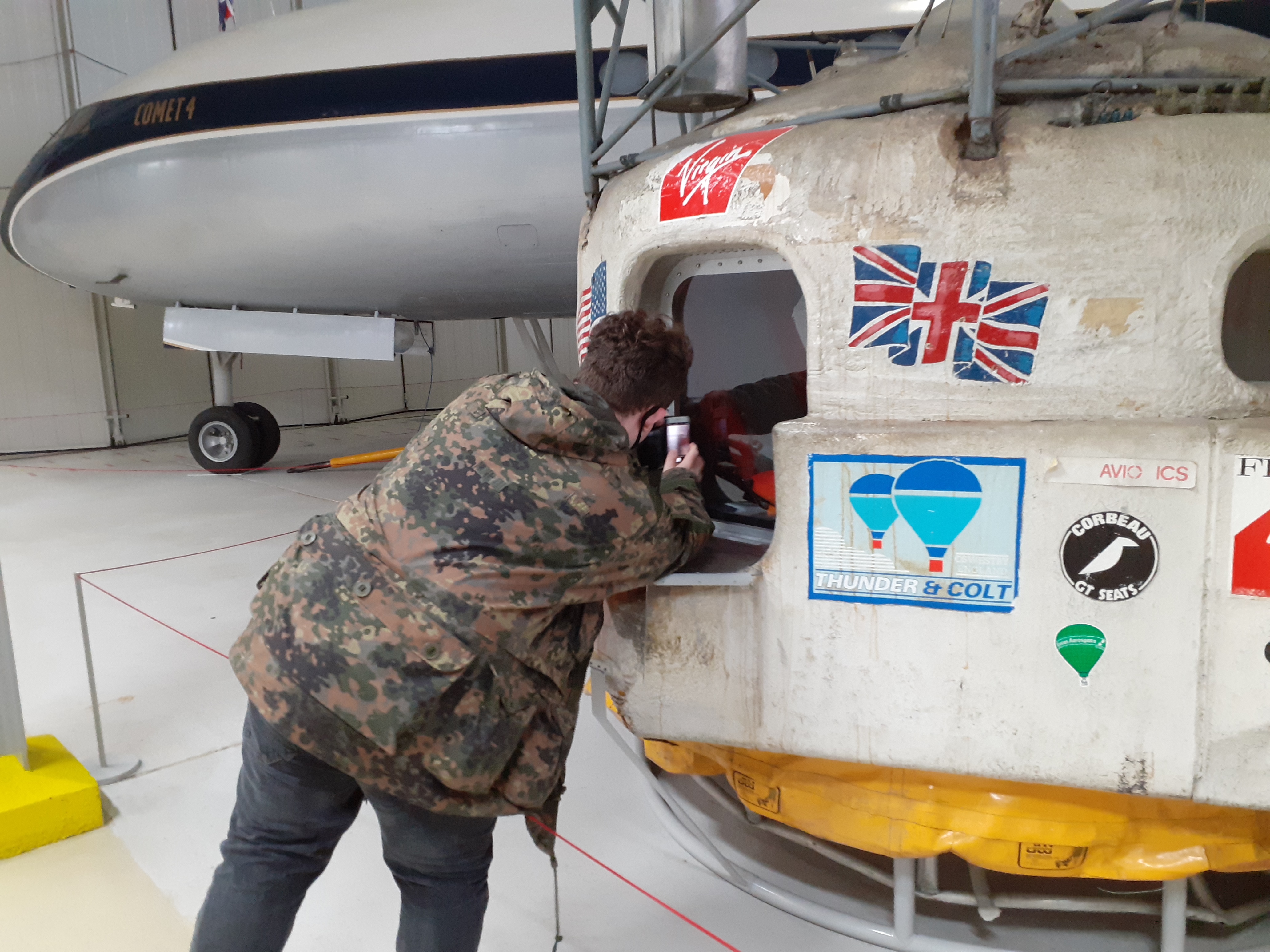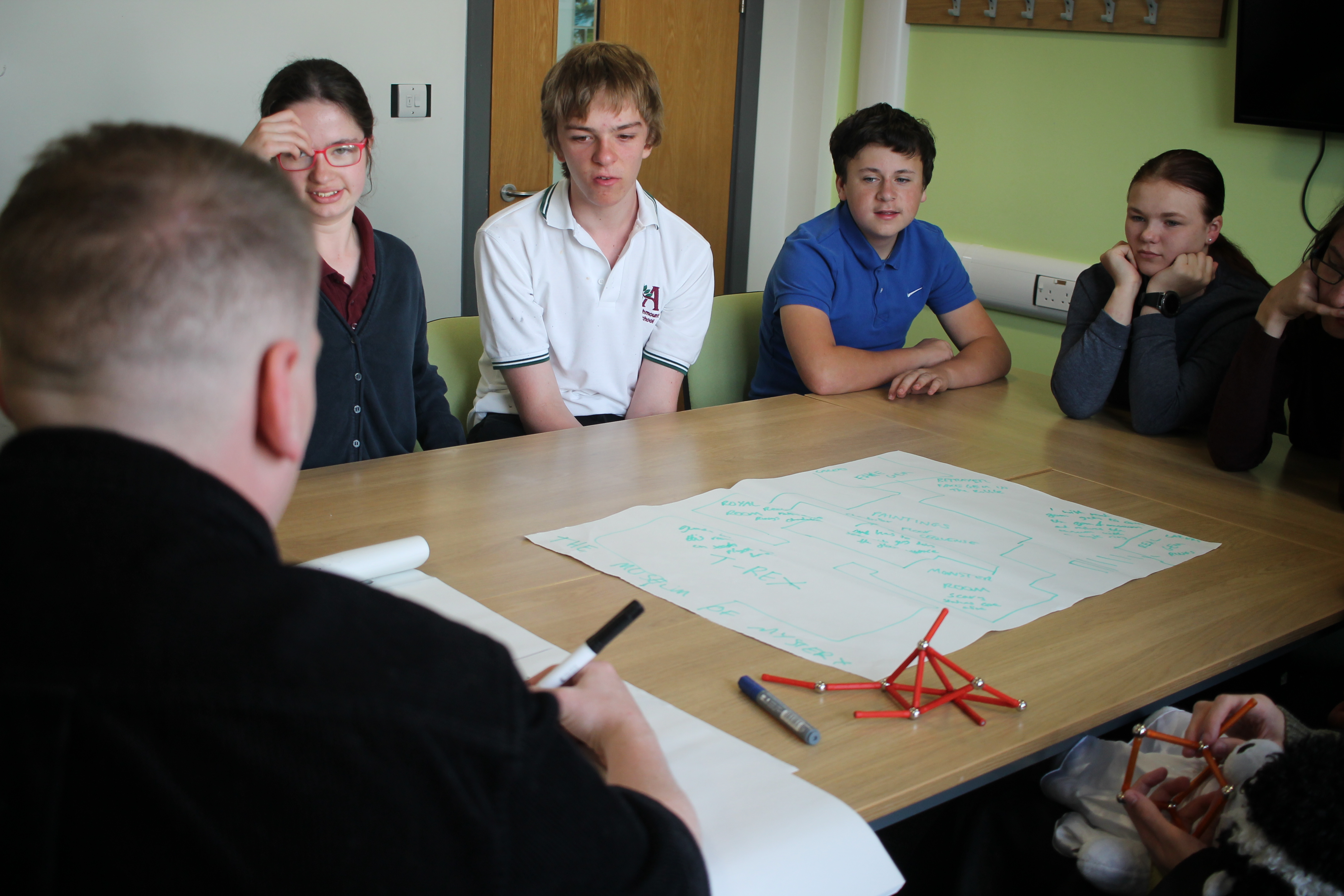
Delivering Arts Award to students with English as an additional language
BY: Guest Writer
15 Sep 2025
As we continue our ‘Arts Award in schools’ theme this month, Emma Spires, Head of Drama & Theatre at Farlington School in Horsham, West Sussex tells us about how they adapt their delivery of Arts Award to enable students with English as an additional language to access it more fully. Emma also shares how their older students work alongside younger students to deliver their arts skills share or support them doing their own Arts Award, and how Arts Award has helped the older students with written work at GCSE.
Farlington School is a small co-educational independent day and boarding school and nursery for ages 6 months to 18 years with a diverse range of students, including international students. We’ve been doing Arts Award for seven years and we started delivering it because we wanted to promote more of a focus on Performing Arts and find a way to make it both engaging and meaningful. We are an Arts Award Trinity Champion Centre.
We started delivering Bronze Arts Award with our Year 9 students and introduced it purely through the curriculum; predominantly through Drama, but over time this has expanded to many different art forms. For Part A (Explore the arts as a participant), students participate in workshops either with me or with a visiting theatre company, and then use the skills learnt to devise a piece as a whole class or in smaller groups. Because they are devising, it enables them to play to the skills of those in the class, and those with English as an Additional Language (EAL), or less confident in performing, are able to fulfil performance roles or technical roles to not only help them feel included, but to complete Part A. Their peers then write comments on post-it notes and the students use these to help them put together their Part A summary of what they have learnt and how their interest, knowledge and skills have developed.
Sharing reflections
For Part B (Explore the arts as an audience member) a trip to the theatre is a great opportunity for an evening out. Instead of sharing their reflections on the production to the whole class, they separate into smaller groups - this works much better for students who aren’t very confident but also our EAL students, some of whom share in their first language and some who choose to use their second. Our students have also been known to share their reflections on the move whilst at competitions! We recently took part in an ISA Drama Competition, and because we had some time to spare whilst we waited, several students chose to do their presentations. This demonstrates how Arts Award doesn't need to be limited to the classroom.
Our teachers and students both love the Part D arts skills share; students have taught me how to play the drums, the ukulele, draw props to scale, draw animations, dance, sign a song and create fake wounds to name but a few.
Our students have said:
'Doing Bronze Arts Award gave me freedom to discover more about whomever I wanted and to take part in the most amazing performances I could have asked to be in.' (Iszy)
‘I enjoyed the opportunity Arts Award gave me to share my skills.’ (Sabina)
Developing new skills
One of the main things I notice from students who have achieved Bronze Arts Award is that when they move on to GCSEs, there are things they are automatically doing in their writing. For example, justifying why they did something by adding in ‘because’, or using evidence to back up their ideas or outcomes, which shows how their research skills have improved as a result of Part C (Arts inspiration). The traditional focus in Key Stage 3 drama is often on practical skills rather than on writing but in doing Arts Award we want to teach them how to perform and develop their creative thinking skills, so Arts Award is a great opportunity to introduce writing in a beneficial and meaningful way. It also integrates writing in an accessible way for EAL students as it doesn't have to be in continuous prose for them to pass.
We developed our offer by extending Arts Award Explore to our Year 6 students, which again we approach through the curriculum and is also a good way to introduce physical literacy into their work as students are able to explore drama and dance in a practical way where they are learning to use their body. For Part A (Take part) our young people create propaganda posters in art, music composition, and a drama performance using mime and mask. Their Part B (Explore) research on an artist and arts organisation sometimes involves the students’ contacting artists or venues directly. One instance of this is when Squire Stage Combat came in to give a workshop and the students were able to interview Mark Ruddick who owns the company; they particularly loved doing this.
Bronze achievers supporting Explore students
What’s really great is that some of my older students who have achieved their Bronze the year before come along to the Explore classes and at break times and help some of the younger students. Those who find writing difficult, whether that be through EAL or individual learning needs, speak to the older students and they then scribe for them verbatim and I sign it off. Or after they do their share activity for Part D of Explore, they sit with older students and talk through their portfolios. This enables even our less able students to participate and achieve. Some of the older students also complete their Bronze Arts Skills Share with younger students by teaching them a new arts skill. Two students this year taught a song in harmony, incorporating sign language, and another ran a workshop for some younger students to teach them how to use a lighting desk. Our older students really enjoy mentoring and some use it for other qualifications such as the Duke of Edinburgh’s Awards.
Supporting students with EAL
In addition to being supported by their peers in class, the older students also help some of our EAL students. Our students with EAL can vary from someone who has very good English skills, to those that speak basic English at an A1 level. Regardless, we have still been able to help all of these students achieve Arts Award, and one student who speaks limited English completed their Bronze Arts Award. It does take some planning, but here are a few helpful hints:
- Google Translate is a great tool. Your student can type what they want to say into Google Translate and show you so you can verify it was their work. You can then copy and paste this into a document. You should have a very clear structure of questions for the student to answer which meet the Arts Award evidence requirements and are easy for them to translate. For younger students you could translate the questions for them.
- Pair students with EAL with one of your more able students or older students as a mentor. You could have an EAL student leading some warm-up games who could practise their English with another student before so that they are able to do all of the presenting themselves.
- Let students with EAL do any research related work for Arts Award in their first language; they can share this research with the teacher to be verified with a translation website. They can then write the bullet points in their own words in English when writing their summary of what they found out from the research.
- Let those with EAL use technical theatre aspects / design to complete arts activities.
- Mime and Masks is a great workshop to do with EAL students of all ages to enable them to take part.
- Art and music are particularly useful as Bronze Part D arts skills for EAL students of all ages.
Here’s what our older students have said:
'I really enjoyed working with the younger students in my skills share, I loved teaching them a skill that is new to them and it was lovely to see them interested in what you had to say. It has made me more confident to speak to others and I found out I really enjoyed teaching! (Hattie)
‘I think that Arts Award improved my language and cultural knowledge and I really enjoyed the entire process. I'm so grateful for all the experiences I had such as watching plays and performing using my skills.’ (Haydi - Cantonese as first language)
Impact
We really enjoy delivering Arts Award in our school and we now offer Discover through to Silver level, with Bronze and Silver being run as a creative, independent task - a bit like a Duke of Edinburgh’s Award for creative people! We still give them opportunities within lessons, extra-curricular activities and productions to complete each Arts Award Part, but the portfolio itself is completed in their own time, and they are free to include additional examples of shows that they have watched or taken part in independently. We are considering the possibility of offering Gold Arts Award in the future, enabling our students to gain UCAS points!
Arts Award gives our students something tangible to work towards, and they really enjoy working alongside their peers and with other students of all ages. It has also given the Arts subjects increased visibility and a sense of academia within the school, proving that they are all rooted in practical work and skills.
If you’re unsure whether Arts Award is something you think you could deliver, or you’re struggling with ways to run it, just reach out to the Arts Award support team via ArtsAward.Enquiries@trinitycollege.com. I’ve not once regretted introducing Arts Award to the school, and the look on the faces of our students when they receive their certificates and badges is totally worth it!
Photo by Farlington School
Related posts
BY: Guest Writer




Comments & Replies